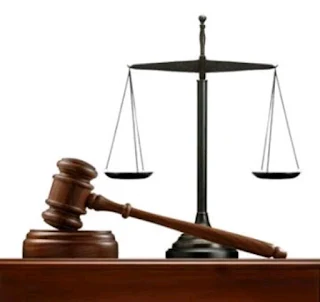The Nigerian judiciary system is a pillar of democracy that thrives on integrity, independence, and the undoubted respect of all stakeholders. However, recent remarks by the Honourable Minister of the Federal Capital Territory, Nyesom Wike, have sparked grave concerns about a potential erosion of these principles. As a Bencher and senior member of the bar, the minister’s conduct during a recent media appearance has drawn criticism, raising questions about his regard for the judiciary and the professional decorum expected of public officials.
During a televised interview, Wike launched a verbal attack on judicial officers, using language and making insinuations widely deemed unprofessional and detrimental to the sanctity of the justice system. Such conduct, coming from someone of his stature, is alarming. It conveys a troubling message that those in positions of power can criticize and demean judicial officers without consequence. This not only undermines judicial independence but also sets a dangerous precedent for public discourse around the judiciary.
The minister’s comments risk creating a hostile environment for judicial officers involved in matters linked to his office. Such behavior could erode the confidence of judicial officers to perform their duties impartially and without fear of intimidation or undue influence. The potential for such interference is particularly concerning in a democratic system where justice must not only be done but also be seen to be done.
The Legal Practitioners Disciplinary Committee (LPDC) must act decisively in situations like this. Tasked with maintaining ethical standards within the legal profession, the LPDC must investigate these remarks thoroughly and enforce accountability where necessary. Such an intervention would reinforce the message that no one, regardless of their position, is above the law. Protecting the integrity of the judiciary is not just a matter of professional ethics but a fundamental responsibility to the nation.
Leadership in public office demands exemplary conduct. A minister, particularly one with jurisdiction over the Federal Capital Territory, wields immense influence and responsibility. Such leaders must demonstrate respect for institutions and the rule of law. Public disparagement of the judiciary undermines not only the justice system but also public confidence in governance.
The judiciary serves as the last refuge for justice, providing impartiality and fairness. Its independence is sacrosanct and must be preserved at all costs. Actions and comments that cast doubt on the judiciary’s integrity weaken this institution and erode public trust in the rule of law.
To safeguard the dignity of the judiciary, all stakeholders—including the media, civil society, and professional bodies—must advocate for accountability and professionalism among public officials. Allegations of improper conduct raised during the minister’s media engagement must also be investigated rigorously, ensuring transparency and justice.
The sanctity of the judiciary is a collective responsibility. All public officers, especially those entrusted with leadership, must lead by example, embodying the principles of justice, respect, and accountability. A strong and independent judiciary is the bedrock of any democracy, and its protection is a duty that society must uphold unequivocally.
Daniel Okonkwo for Profile International Human Rights Advocate.
 |
Comments